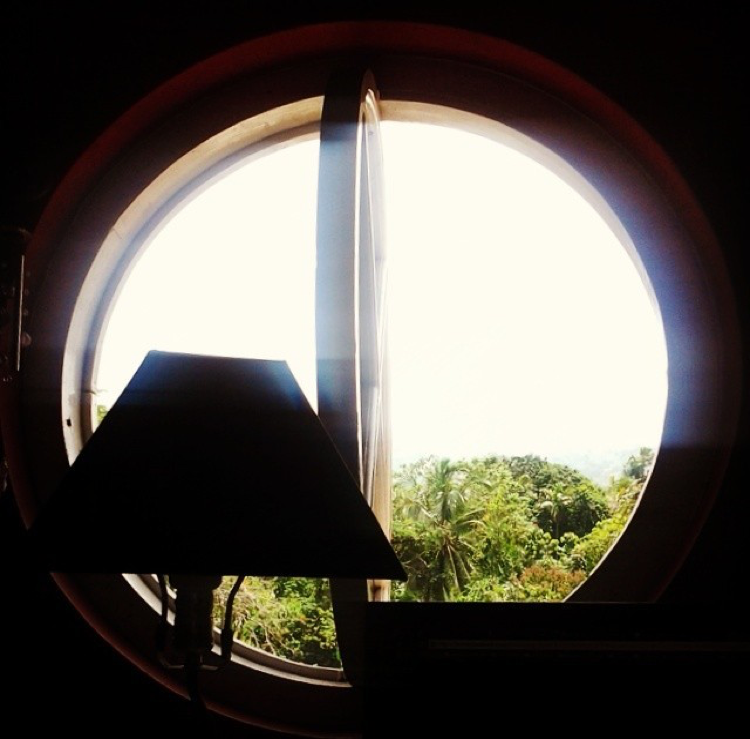
Interview with Vernon, a freelance technical writer
How did you get started with remote work?
A few years ago, 2012 I think, I began hearing about the freelance industry (well, it’s not quite an industry in the technical sense, it’s more a mode or collection of industries, but you know what I mean) and the possibilities thereof.
Now, being a creative, I was open to the idea of being a freelancer, but I hadn’t quite thought of it seriously. At the time I was still entrenched in the traditional (at least where I come from) world of the 9 to 5, a regular paycheck, J-O-B.
Last year I had been working at a high school as a system administrator before my contract ended. I was searching for my next job, doing interviews and sending out resumes, when I recalled that I created a profile on Upwork, an online freelance marketplace, some years before as a test of sorts.
I figured “Ok. In the meantime, until I get something else, why don’t I hustle online?” Almost simultaneously, I was exposed to technical writing and, it turns out, I wasn’t bad at it.
I also started exploring freelancing as a career choice and found, after running the numbers and doing the cost-benefit analysis, that this would be almost perfect for me.
Some would call me weird or crazy (I’m also a musician) but I don’t like large, constricting structures. I realized that I’m kind of an entrepreneur at heart and that, as a freelancer, I could maintain the kind of lifestyle that I wanted to live. My time and focus would, mostly, be mine to manage. The path of my career would be mostly under my control.
My progress and my earnings would not be dictated by the whims and decisions of a handful of middle managers or bureaucrats (in the case of working for the government) but by my sweat and effort and assessment of the industry landscape.
It’s risky, absolutely, but the risk is mitigated by knowledge. And you gain the knowledge you need through research, training, experience, and networking with those who’ve been doing it longer than you. But you also need tenacity. Your business, as a freelancer or entrepreneur or investor, will not become successful overnight. It’ll take time, and it’ll take consistent effort but, for those who choose this path, it’ll be totally worth it.
As for other things I've done, as I said, I've worked as a high school computer lab technician and system administrator. However, I've also been an information technology manager for a small company; an IT support agent; a technical support team leader; customer service and technical support trainer; and, most importantly, a musician (I had a band for eight years. Good times).
Apart from being a musician, all of these jobs were 9 to 5's with regular salaries. Being a musician, that kind of life can feel “soul-sucking,” but I had my band and my music. That allowed me to survive spiritually, while the jobs gave me a steady income that allowed me to survive physiologically.
Transitioning to remote work was risky, but I believed in it. Still, do. That’s why I’m still doing it. My income is not where I would like it to be, but it has been growing steadily as I get better at it. Plus, the market is, by definition, worldwide.
Yes, I’m competing with people from all over the world, but there’s more than enough to go around in my estimation.
Read 114 answers from other remote workers
What are you working on?
I’m producing documentation for a number of clients. My longest client is a software company that has a flagship SaaS product which I support.
Unfortunately, I can’t say much about the work I do for them, or the product, as it’s protected by an NDA (Non-Disclosure Agreement). I provide documentation for Focus, the Mac productivity app we all love.
I regularly produce technical articles, on the order of one a day sometimes, for a European web hosting company. I’m also in negotiation with a local utility provider to produce documentation for a new project, but that I can’t say much about either.
Read 107 answers from other remote workers
What's your typical work routine?
I try to maintain regular working hours. I wake up between 6 am and 7 am and go through my morning routine of meditation, exercise, shower, and breakfast.
I then head out to my office. I used to work from a home office, but I find it's difficult to maintain discipline while working at home.
Home is my sanctuary away from work.
When I get to my office I look at my outstanding assignments and prepare a to-do list for that day, breaking up large assignments into smaller, manageable chunks, then I have at it.
I work until lunch, take an hour off, start again and continue until sunset.
As a freelancer, lists are essential. I make lists for everything. You need to stay organized and on top of multiple projects with multiple clients. Missed deadlines and incomplete jobs do not reflect well on you, so you have to stay frosty. Lists will help you to do that. At the same time, however…
When you do mess up, and everybody has, you need to move on as quickly as possible. Don’t beat yourself up, obsess about it nor allow it to make you second guess yourself. Your confidence is an important component in building your business. So forgive yourself often and keep your eyes forward.
Always be aware of the things you need to know that you don’t know and make an effort to learn them. Don’t have the time to properly invest in it? Doesn’t matter, learn what you can, when you can.
It is better to have a cursory knowledge of a topic than be completely ignorant of it. Besides, once you get into the habit of learning (yes, make it a habit) you’ll eventually get up to snuff on whatever you need.
Take frequent breaks, if you can. Most remote work is knowledge work, and knowledge work is intense. Don’t burn yourself out. A Pomodoro timer is excellent for this.
The best things about freelance remote work are that my time is mine to control, but I have to be disciplined about it. That being the case, many times in my life things will come up which mean shifting up my schedule to accommodate other missions.
This is, again, where my lists are invaluable. They allow me to organize my work and time allotments to maintain my priorities, a key one being to provide my clients with their deliverables on time and at good quality.
Regarding good habits, waking up early is always a good idea. The earlier I wake up, the more work I get done. Also, as I said before, keep lists. I will encourage everyone to keep lists. Lists help to keep you on top of your work specifically and your life in general.
Be optimistic and stay positive. As a freelancer or entrepreneur engaged in remote work, you need to maintain positivity, especially when things aren’t going so great, because a positive attitude may be the only thing that can pull you out of a slump.
By and large, though, the greatest aid to a remote worker is self-discipline. Being a remote worker can be lonely. It’s just you. No one will be pushing or prodding or encouraging you. There’s no one keeping you on track. Only you can make sure that the work gets done well and on time. You’ll find that as your discipline increases, everything runs smoother.
Read 92 answers from other remote workers
Do you have a dedicated space to work?
Yes, I do. Two actually.
My first workspace is at home. Now, while I am not a fan of working from home, it can come in handy sometimes. Other times it may just be a necessity at that particular moment, for any number of reasons. My other workspace is a small office in the city.
At home, I have a small study which I use as my home office. Pretty standard as home studies go. A few bookshelves with an array of titles. Mostly novels, but a few non-fiction texts on a variety of topics.
There's a huge, black, soft leather recliner for when I need to give myself a break. I have a small desk with my desktop computer where I sit on a nice ergonomic swivel chair and do the work.
The best part about the home office is the view through my window. It's a large circular port window that faces the mountains. The view is awesome on a sunny day.
On a rainy day, it's pretty grey, but the sound of rain is always wonderful. (I used to have a TV in the office a well but that turned out to be a very-not-good idea. Note: For optimal productivity, keep distractions to a minimum.)
The view from Vernon's home workspace. 
My second workspace is a small office where my Dad works. My father is a medical doctor and has a thriving practice in the city of Kingston, Jamaica.
He owns a small building which houses his practice as well as some additional office space. Being the supportive parent he is, he offered to help me with my business, providing me with office space to work out of.
My (I guess we'll call it) “official” office is very sparse compared to my home office. This office is comprised of a simple desk, a swivel chair, and my laptop.
There's a single window, but it's usually covered by blinds, and the interruptions and distractions are, thankfully, few and far between. It provides the space and opportunity to focus on the work at hand.
Read 93 answers from other remote workers
How do you manage having too much or not enough work?
Too much work is still a rare occurrence, but that's becoming less and less the case as time goes on and business improves.
When multiple clients require their deliverables within a tight time frame, then it's all hands on deck. Planning is key. Like I said before, keeping a list of all tasks required is an absolute must, but when things get hectic, you need to plan beyond just the work itself.
You need to make sure that any social obligations are cleared for the foreseeable future, to make yourself as inaccessible as possible (no social media, no messaging apps, turn off your phone if needs be) and to ensure that you have a concrete plan of exactly what you need to do and how you're going to do it, and then impose the necessary deadlines on yourself.
Now, as for times when there is less-than-enough work, I have two things to say about that. Firstly, not having enough work is something that all freelancers should aim to minimise, obviously.
In my experience the only way to do this is to make looking for new jobs a part of your daily routine. It should be like exercising or making your bed or brushing your teeth.
Do it daily, making it a regular habit. Maintaining your marketing efforts (which is basically what it is) is good practice for your business. It is always better to have too many offers than not enough.
Having said that, knowing something is good practice and making it a practice are two different things. I sometimes drop the ball on marketing, and I have paid for it with lean times, times when all existing assignments have been completed, and there are no pending assignments on the observable horizon.
But this leads to my second point. Slow times are not always a bad thing, as long as you utilize them properly.
During lulls in my workflow I focus on expanding my skill set.
Education does not stop after college/university. You should always be learning. No one knows everything. There is always something you don't know, some skill you don't have.
When I have free time I try to utilise it by learning things that can enhance my career, be it directly (like learning how to use software particular to technical writing, like Adobe FrameMaker) or indirectly (such as learning how to better market myself and my services).
Of course, life is not uni-dimensional; there are other things besides work and career, so lulls in the workload can sometimes be opportunities to handle other aspects in one's life.
I recently went through a lengthy family emergency and, while I did have a substantial amount of work on my plate at the time, I had to make the time to handle it.
Fortunately, I had clients that sympathized with my situation and allowed me the space to deal with it. So, in that way, not having enough work can sometimes be a blessing. Sometimes it's just a matter of perspective.
Now, a light workload also results in a lack of income, naturally, and for some freelancers this can be a serious problem. In my case, I've set up a “cushion” that eases me during these hard times.
Now, while these times are never comfortable (rather anxiety-inducing actually), I can survive a few weeks without any additional money coming in.
In fact, anyone who decides to start a new business or independent career endeavor should ensure that they are in a position to tolerate a few bad weeks or months in the early days.
With that in mind, you should always ensure that, when times are good, you save a portion of your income to see you through the low periods (and they will come). If you plan ahead, making sure that you always maintain an emergency fund to survive on, and maintain your tenacity, riding out the lows, you should be ok.
Read 18 answers from other remote workers
How do you stay on task?
As I've mentioned before, and I don't mind repeating it, as a freelancer and remote worker lists are your best tool. When building a list, you can organize your entire work schedule for the whole project or the foreseeable future.
You can come up with contingency plans and alternatives long before they become necessary, and if they become required, you can minimize panic and worry because you'll already know what to do should anything go wrong.
Taking your lists further, you can attach deadlines to each list item, essentially turning your list into a schedule. This will help you by forcing you to manage your time and also requiring you to prioritize your tasks as there is never enough time to do everything. By implementing a schedule, you'll find that you get a lot more work done in a lot less time with a lot less stress.
Having said that, another simple tool that keeps me on track is the humble alarm clock. Not just any alarm clock mind you, but specifically the alarm clock on my phone. I label the alarms on my phone for specific purposes, be it waking up and getting out of bed or a reminder to complete some errand.
When I am working, however, I try to take frequent breaks to avoid burnout. For this, I have a Pomodoro Timer. I set it for a very short work period when I start working in the morning and extend it once my mind starts to get into the groove.
Read 100 answers from other remote workers
What do you like about remote work?
I love the fact that I command my own time. Now, while this may not work for all remote workers, such as those who do remote customer service, it works in my case. I work by deliverables.
Where, when and how I decide to work on those deliverables is up to me, but as long as I deliver them on time, under budget, to specifications and at high quality then my job is done.
If I decide to take a day off or do not start working until two in the afternoon, then that's completely up to me. Having said that, if I'm feeling particularly industrious or productive, and I decide to put in a 12 hour day or work on the holidays or weekends, then I can do that if I want. And I know that the extra work I put in will be directly rewarded.
I don't have to work in the same place. Once I have Wi-Fi or data I can work almost anywhere I please, in almost any country that I choose. I can wear whatever I want.
I am able to avoid negative aspects of typical work culture like gossip, office politics, nepotism, favoritism, crappy bosses and their respective sycophants.
If I have a client that I find difficult to work with, and every freelancer will have or has had this experience, then I can choose whether or not to continue the relationship at little risk to my income, career or reputation. Of course, this must be done carefully and respectfully, but the point is that I do not have to suffer in a job I hate impotently.
I have total control over my time and methods, and I'm not bound by someone else's arbitrary rules. I make rules that work for me.
Read 106 answers from other remote workers
What do you not like about remote work?
There are really only two aspects of remote freelancing work that I don't like. And those would be the lack of a steady income and lonesomeness.
Being a freelance remote worker is like being any other entrepreneur. You're building a business.
Building a business takes time. It takes time to learn the ropes, to build your reputation and your brand, to learn about the industry and to tweak your product into something that the industry can find useful or valuable.
I have full confidence that the more I work at these things and the better I get at marketing myself and networking the more my income will improve and become more reliable.
Working remote freelance is nothing like working in a local office or for a local company. You don't have coworkers you can discuss projects with face to face or converse with by the coffee machine.
You won't have the same opportunities for after-work hangouts (granted, as a freelancer you can still try to arrange something like that but it's more complicated).
And you won't be surrounded by the hustle, bustle, and energy of a typical office environment (unless you're working in a shared space or coworking space) which some people can feed off of or be inspired by.
Having said that, for me, these positive characteristics of the typical work environment are easily sacrificed for the benefits of remote freelancing.
Read 103 answers from other remote workers
What tools do you use to stay productive?
As a technical writer, most of my time is spent either testing, researching or writing. As such, the tools that I use support those functions.
Specifically, I am a software technical writer; that's my specialty. So "testing" involves using the software that I'm working with. I use a Windows 10 laptop, but if I'm writing documentation for a Mac app such as Focus, then I'll use a Mac Airbook that I have access to.
I am, however, looking into running a virtual Mac on my Windows laptop, for convenience, using VirtualBox or some other suitable virtualization software. This program will also come in handy should I require testing apps within a Linux environment.
Some applications are online, be it an applet on a website or a full-blown SaaS platform. For these, a good web browser that supports the underlying architecture is necessary. As such, while I usually use Google Chrome, I might have to use another browser such as Windows Explorer or Windows Edge should there be any issues.
Most of my research happens online, so a good web browser is key. As I said before, I like to use Chrome. It's fast, reliable, highly customizable and extendable given the applets and extensions in the Google Web Store. It rarely crashes and most websites support it.
The actual act of writing can be complex. Most of my writing used to be done in Microsoft Word, but I've recently had to look for frugal alternatives. I've been using the OpenOffice suite of programs, specifically OpenOffice Writer.
It's not as polished or feature-rich as Microsoft Word, but it definitely gets the job done. I may return to using Microsoft Word, but so far I'm good with what OpenOffice has to offer.
Now, Writer and Word are great for starting, making notes and preparing drafts, but the final product may require something more specialized. For those clients who require PDF documents, depending on what they're asking for, I could simply render the .pdf file using Word or open the file in Adobe Acrobat.
If the client requires Help Files to be written for their program then I would use RoboHelp. RoboHelp allows me to write software documentation and export it to a number of file formats such as Adobe AIR and Microsoft WinHelp.
For clients who require, or already have structured documentation or require their documentation to be done in an XML or SGML formats then I would use Adobe FrameMaker.
So far in my short career, these last two options have not been requested. They are standards within the industry though, so I know that it's only a matter of time before I acquire clients who will make such requests. Having said that, I'm learning how best to use them.
Apart from these tools, I've had to use other online tools used by the client such as Freshdesk and Confluence for documentation, DropBox and Google Drive for file sharing, JIRA and Trello for task scheduling and teleconferencing apps such as Zoom, Skype and GoToMeeting.
The last set of tools I use are for time tracking. For those clients who pay me on an hourly basis, and so far they are all on Upwork, I use Upwork's Time Tracker app. It records my work session when activated so that my clients can review the work I've done, ensuring them that I am doing what they pay me to and that their money is well spent.
Read 108 answers from other remote workers
What contributes to being a successful freelancer?
In a word, discipline. Ultimately, that's what it all comes down to. Ideally, it'd be nice to have talent regarding whatever profession you choose or whatever service you strive to deliver but, even then, the discipline still trumps talent.
You need to be diligent and have the discipline to keep to your schedule, to adhere to your lists, to update your lists regularly, to do the work and to get it delivered when it's due and at the highest level of quality, you can achieve.
You need to have the discipline to study and learn on a regular basis, to keep your skills up to date, to stay informed on the trends in your chosen industry and to be aware of the latest standards in technology relevant to your field.
As I think about it, tenacity is also important. You need to have the tenacity to stick with it, to keep searching, to keep pushing, to keep getting better at your craft. But then, depending on how you look at it, tenacity can also be a result of discipline.
If you discipline yourself to constantly practice these principles then, from the outside, it will most definitely look like tenacity. And maybe, in a way, that's what tenacity, at its core, really is: Discipline.
Read 19 answers from other remote workers
What did we forget to ask Vernon DaCosta?
At RemoteHabits we're always trying to improve our interviews, what question should we have asked Vernon DaCosta?
Biography
Vernon DaCosta
Vernon DaCosta is a freelance technical writer who may be found on LinkedIn, Upwork, PeoplePerHour and Freelancer.
Work remotely? Share your story on RemoteHabits!
Want to be interviewed? If you have a remote position, head over to the interview me page!
Looking for a remote job?
RemoteHabits Jobs has everything you need to find your next great remote work position!
Related Interviews
Interview with Pamela, a travel writer adjusting to freelancing
Pamela is new to the world of freelancing. In this interview, she shares the ups and downs of adjusting to the gig economy.
Interview with Saibu, an HR content writer for a remote company
Hear how Saibu, a thriving HR content writer, navigates the complexities—and perks—of working with a remote team from Ghana.
Interview with Max, a Deep Learning Engineer with a winning strategy for distractions
After a chance Twitter conversation, Max found a remote position as a Deep Learning Engineer —see how he manages distractions and maintains focus throughout his day.


